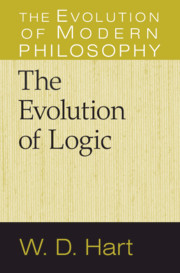Six - Accommodating Cantor
Published online by Cambridge University Press: 05 June 2012
Summary
Cantor’s key to paradise was his proof that every set is strictly smaller than its power set, the set of all its subsets. In von Neumann’s theory of ordinals and cardinals, which is now the industry standard, the smallest infinite ordinal, ω, is the set of all finite ordinals, or natural numbers, and the smallest infinite cardinal, Cantor’s ℵ0. By Cantor’s proof, the power set of ω, P(ω), has a cardinal number bigger than ω, and iterating opens the door to a paradise of different infinite numbers, as many as there are ordinals. In von Neumann’s theory, the less-than relation between ordinals is just membership, a cardinal is an ordinal in one–one correspondence with none of its predecessors (or members), and by Cantor’s proof for every cardinal there is a bigger one. So if we let ω(0) be ω, ω(α + 1) be the least cardinal bigger than ω(α), and, when λ is a limit, ω(λ) be the union of all the ω(α) for α less than λ, we get as many infinite cardinals as there are ordinals. Our ω(α) is our version of Cantor’s ℵα; both notations are still common.
P(ω) has exactly as many members as the set of real numbers. We have seen a natural one–one correspondence between P(ω) and the reals from zero up to, but not including, one. Cartesian coordinates assume a one–one correspondence between the real numbers and the points on a line. Since lines are the basic example of continua, the cardinal of P(ω) is called the cardinal of the continuum. By our construction, ω(1) is the least cardinal bigger than ω(0) = ω, and by Cantor’s theorem, the cardinal of P(ω) is bigger than ω, so the cardinal of the continuum is bigger than or equal to ω(1). But which, bigger or equal? Cantor conjectured that the cardinal of P(ω) is ω(1), and this is known as the continuum hypothesis. The generalized continuum hypothesis says that for all α, the cardinal of P(ω(α)) is ω(α + 1), which would make the power set function like the successor function on natural numbers.
- Type
- Chapter
- Information
- The Evolution of Logic , pp. 152 - 174Publisher: Cambridge University PressPrint publication year: 2010

